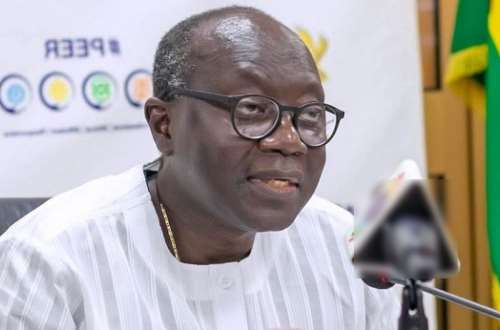Gov’t to launch public-private initiative to fuel economic recovery
The centre-piece of the framework to firmly put the nation on a path to economic recovery and prosperity is the Ghana Mutual Prosperity Dialogues (GMPD), a public-private partnership aimed at attracting foreign and local investments while promoting shared growth anchored on job creation, exports and import substitution, finance minister Ken Ofori-Atta has disclosed.
During the 2023 mid-year budget presentation, Mr. Ofori-Atta emphasised the government’s commitment to creating an enabling environment for businesses to thrive, encouraging innovation and boosting productivity.
“The Mutual Prosperity Dialogue represents a relationship wherein the private and public sectors coexist, thriving together, as neither can flourish without the well-being of the other,” the minister explained.
The GMPD’s primary objective is to understand needs of the private sector better, and pragmatically remove constraints that hinder ease of doing business in the country. Through engaging with the private sector at industry level, the state aims to craft forward-looking policies that align with the aspirations of different sectors.
Growth projections for the next four fiscal years are 1.5 percent for 2023, 2.8 percent for 2024, 4.7 percent for 2025 and 4.9 percent for 2026.
The minister acknowledged that these figures alone will not suffice to create the required jobs and investments for significant economic transformation.
“The projections for growth are 1.5 percent, 2.8 percent, 4.7 percent and 4.9 percent respectively for the 2023, 2024, 2025 and 2026 fiscal years. This will not create the needed jobs and investment required to transform the economy,” he added.
To address this, he said, government is designing a growth agenda that focuses on promoting private investment and attracting foreign direct investment (FDI).
The proactive partnership between government and the private sector is envisioned as a means to foster economic growth and job creation.
One of the critical drivers for this initiative is Ghana’s pursuit of macroeconomic recovery. Establishing a broad-based dialogue on FDIs is deemed essential to unifying the private sector and government’s voices to tackle private sector development challenges. This is particularly vital for attracting and retaining FDI in the country, thus enhancing Ghana’s appeal to both domestic and foreign investors.
FDI is seen as a critical catalyst to revitalise economic growth and reduce the country’s debt burden. As such, government recognises FDIs’ potential in bringing capital, technology and knowledge into strategic sectors of the economy for long-term growth, the fiscal authority’s chief added.
“Creating an attractive investment environment necessitates collaborative efforts from various stakeholders within the country to boost Ghana’s competitiveness on the global stage,” added Mr. Ofori-Atta.
The country has historically been the preferred destination in the region for FDIs, which were valued at US$1.3trillion last year by the Organisation for Economic Cooperation and Development (OECD).
Ghana secured second spot as the leading recipient of foreign direct investment in 2021, according to the World Investment Report, with a notable 39 percent increase in FDI flows. The country received US$2.6billion, surpassing its 2020 record of US$1.8billion.



